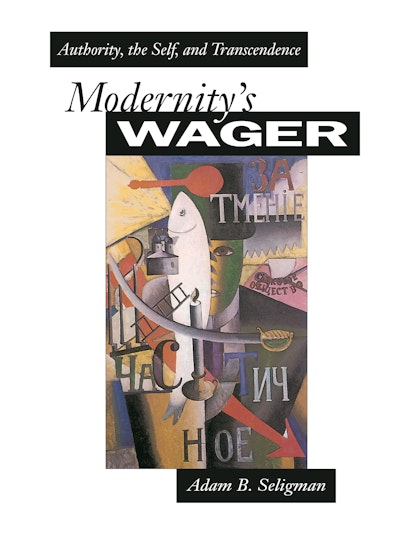Modernity's Wager: Authority, the Self, and Transcendence


Paperback
- Price:
- $44.00/£35.00
- ISBN:
- Published:
- Aug 3, 2003
- Copyright:
- 2000
- Pages:
- 192
- Size:
- 6 x 9.25 in.
- Main_subject:
- Philosophy
ebook
Adam Seligman, one of our most important social thinkers, continues the incisive critique of modernity he began in his previously acclaimed The Idea of Civil Society and The Problem of Trust. In this provocative new work of social philosophy, Seligman evaluates modernity’s wager, namely, the gambit to liberate the modern individual from external social and religious norms by supplanting them with the rational self as its own moral authority. Yet far from ensuring the freedom of the individual, Seligman argues, “the fundamentalist doctrine of enlightened reason has called into being its own nemesis” in the forms of ethnic, racial, and identity politics. Seligman counters that the modern human must recover a notion of authority that is essentially transcendent, but which extends tolerance to those of other—or no—faiths.
Through its denial of an authority rooted in an experience of transcendence, modernity fails to account for individual and collective moral action. First, deprived of a sacred source of the self, depictions of moral action are reduced to motives of self interest. Second, dismissing the sacred leaves the resurgence of religious movements unexplained.
In this rigorous and imaginative study, Seligman seeks to discover a durable source of moral authority in a liberalized world. His study of shame, pride, collective guilt, and collective responsibility demonstrates the mutual relationship between individual responsibility and communal authority. Furthermore, Seligman restores the indispensable role of religious traditions—as well as the features of those traditions that enhance, rather than denigrate, tolerance. Sociologists, political theorists, moral philosophers, and intellectual historians will find Seligman’s thesis enlightening, as will anyone concerned with the ethical and religious foundations of a tolerant society.